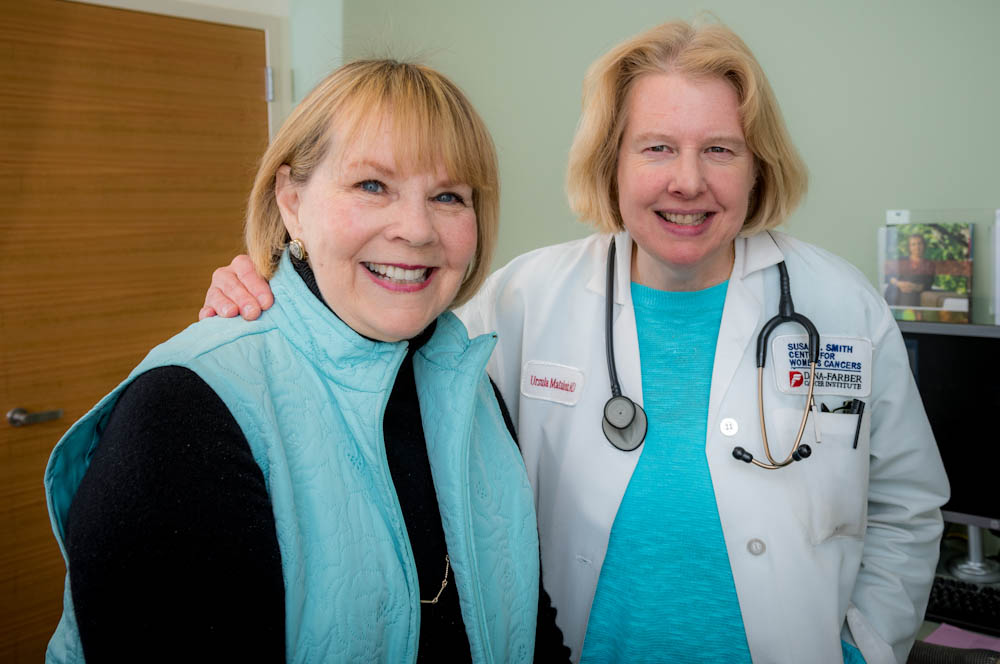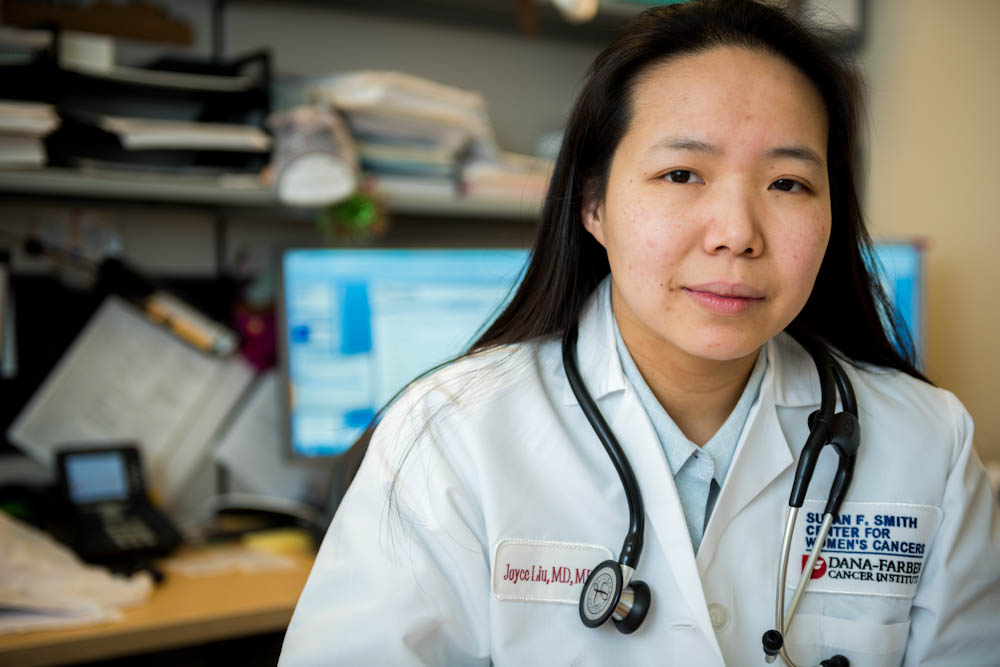When Donna Gregory’s ovarian cancer came back for the third time, she began looking for alternatives to chemotherapy. She’d been diagnosed with stage III ovarian cancer in 2003, at age 58. After having surgery to remove her tumors, she tried platinum-based chemotherapy, but her cancer did not respond. Several more chemotherapy drugs worked, but only briefly.
Gregory searched for experimental alternatives and found a clinical trial, led by Joyce Liu, MD, at the Susan F. Smith Center for Women’s Cancers at Dana-Farber. The trial was open to women with recurrent ovarian cancer, and wasn’t restricted to BRCA mutation carriers or platinum-sensitive cancers. “I thought, oh, this is perfect for me!” she recalls.

The trial was evaluating the effectiveness of taking two targeted drugs (agents that interfere with the biological machinery that drives tumor cell growth), and joining them as a unified force. Gregory immediately flew to Boston from her home in Miami, Fla., and enrolled. After just eight weeks on the drugs Gregory’s tumor shrank by 57 percent.
Read more:
Each year in the United States, approximately 22,000 women are diagnosed with ovarian cancer. While many respond to initial chemotherapy, the cancer often comes back. Dr. Liu’s trial tested a new combination of the drug olaparib, a PARP inhibitor that compromises the way cells repair broken strands of DNA, thereby making them more vulnerable to death, with cediranib, an antiangiogenic drug that interferes with the machinery that builds new blood vessels.

In results reported in 2014, combining these drugs resulted in impressive activity, with tumors shrinking by more than a third in almost 80 percent of women receiving the combination. Dr. Liu is now leading additional trials that will enroll more women and compare the drug combination in a head-to-head test with the current standard of care.
While Dr. Liu’s trial was the first of its kind for ovarian cancer, it is certainly not the last. Since then, clinical researchers have begun several other trials of novel combinations in women with recurrent ovarian cancer. “We’re here to expand the options for our patients and provide treatments that are based on the genomic abnormalities of their particular cancers,” says Ursula Matulonis, MD, medical director for Gynecologic Oncology at the Susan F. Smith Center.
Read the full story in Dana-Farber’s Turning Point.

Would this work basically the same for someone with metastatic breast cancer and BRCA2 positive? I’m begging my doctor for a PARP, but I remain tormented by the very ineffective platinum chemo I’m on. I NEED something else but it’s hard to convince my doctor even though the cancer is progressing.
Dear Carrie —
Thank you for your comment. We’re sorry to hear about the trouble you’ve been having. It is best to bring up this question with your doctor or oncologist, as they can provide the best advice for you.
If you are interested in a second opinion at Dana-Farber, the procedure is the same as for becoming a new patient. If you are able to come to Boston to meet with our treatment team, please call 877-442-DFCI (877-442-3324) or fill out this online appointment request form:
https://www.dana-farber.org/apps/request-an-appointment.aspx
If you are not able to travel to Boston, Dana-Farber offers a program called Online Specialty Consults, which allows patients and physicians to confer with our specialists online about second opinions, treatment options, or clinical trials.
These links provide an overview of the process:
http://www.dana-farber.org/Partners-Online-Specialty-Consultations.aspx
https://econsults.partners.org/v2/%28jwewk42ud2zpsevdo4p1l545%29/Tour/1.html
I hope this is helpful and wish you all the best.